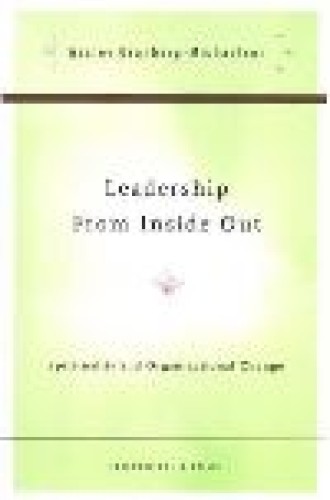Leadership from Inside Out
In this wonderful small book, Wesley Granberg-Michaelson, head and heart of the Reformed Church in America, gives new meaning to the directive “Be yourself,” or “Be authentic.” Edwin Friedman told us in his seminal book Generation to Generation that leaders need to be self-differentiated, as well as “nonanxious presences.” But being self-differentiated is a difficult task, and some leaders who have been authentically themselves have still faced leadership problems.
When leaders take on the “chronic anxiety in an organization or group,” Granberg-Michaelson contends, “the system cannot help but become even more dysfunctional.” Imagination is thwarted, indecisiveness is accepted, sabotage is condoned. Efforts to keep the peace become leaders’ top priority. So Granberg-Michaelson gives us a second wind by bringing home the inevitability of conflict, the persistence of problem people, and the “nevertheless” of hope in organizational transformation.
Widely read in both the religious and the secular literature on leadership and organizations, Granberg-Michaelson shows us what it means to change the culture of an organization, and he recognizes that this is exactly what is happening in the dinosaurs we call denominations. Drawing from his own experience in leading the General Synod of the Reformed Church in America, he holds up the importance of celebration, of building community, and of the process of casting a vision as opposed to arguing over resolutions.
Granberg-Michaelson sets an example of good national leadership by casting his net widely, learning from and teaching people in denominations other than his own. Because the author makes a habit of listening, the book is heavy on quotes, but it is from these that the wisdom of a variety of leadership mechanisms is distilled.
What Granberg-Michelson mostly hears is change—and where there is no cultural change, he hears deep disturbance. Religious organizations that are “equipped to address the dramatic challenges posed by North American culture in the twenty-first century,” he writes, “are those that have intentionally learned how to instill steady and deep change in their organizational culture.”
Here is a denominational executive who listens deeply to past, present and peer. His book is a gem.





